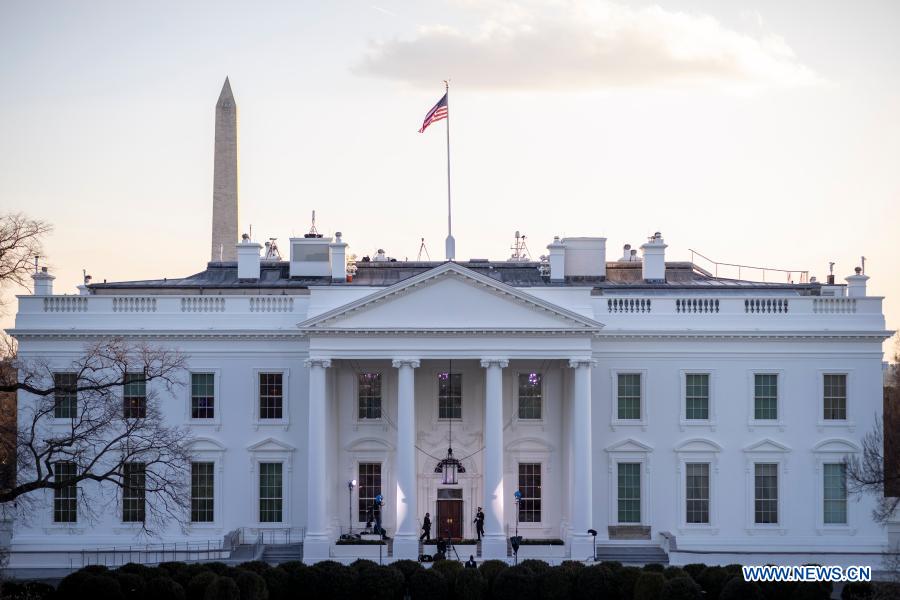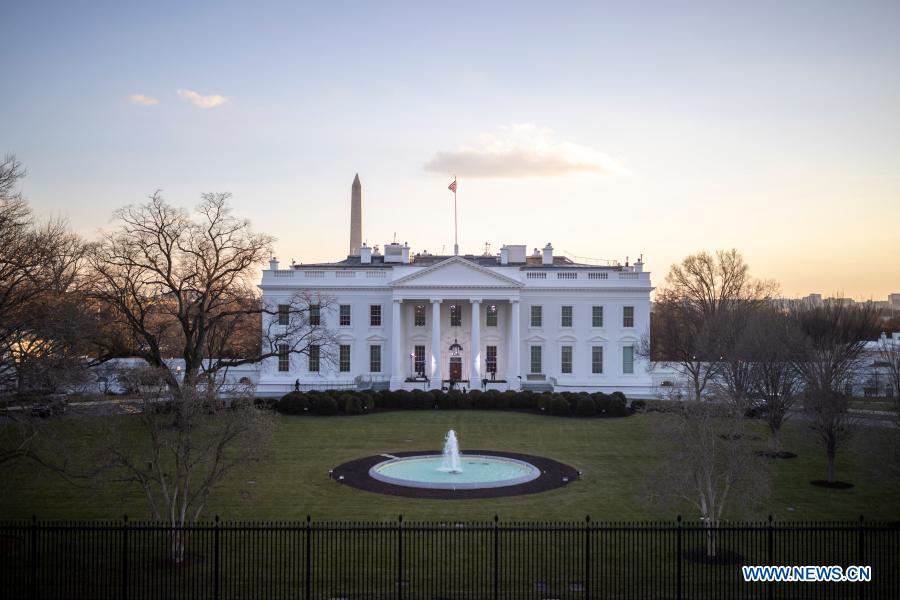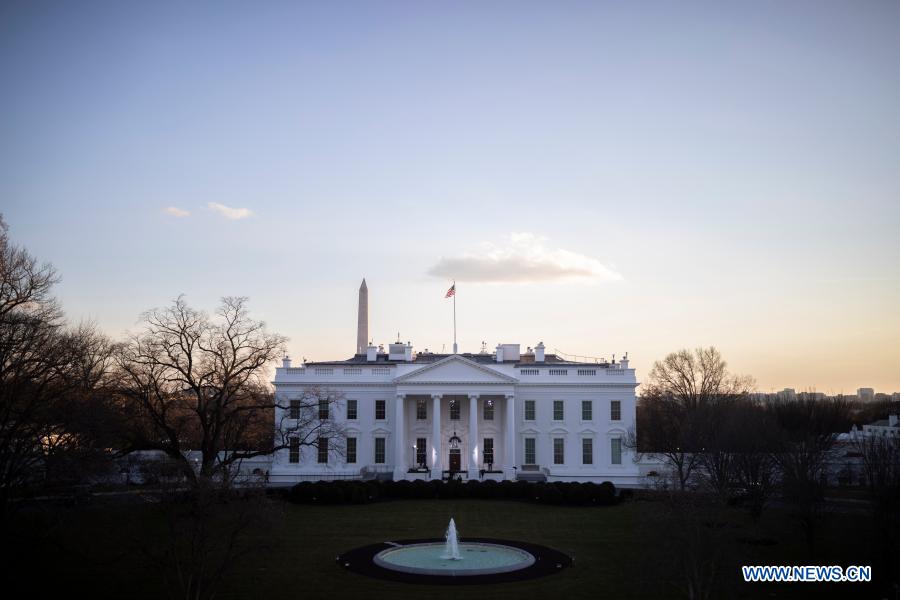Video PlayerClose
Photo taken on Jan. 20, 2021 shows the White House in Washington, D.C., the United States. U.S. President Joe Biden on Wednesday signed an executive order returning the United States to the 2015 Paris Agreement on climate change. (Photo by Ting Shen/Xinhua)
WASHINGTON, Jan. 20 (Xinhua) -- Hours after being sworn in as the 46th U.S. president on Wednesday, Joe Biden signed a series of executive actions that reversed some of his predecessor Donald Trump's signature policies.
The 17 executive orders, memorandums and proclamations mainly fell within the four categories of the COVID-19 pandemic, economic fallout, immigration and diversity issues, and the environment and climate change.
"There is no time to waste when it comes to tackling the crises we face," Biden said in his first tweet as president.
Among the president's executive actions were a mask-wearing mandate on federal property, the start of a process to bring the United States back to the 2015 Paris Climate Accord the country exited under Trump, as well as a sweeping immigration overhaul to end the Muslim travel ban, the construction of the border wall, and the suspension of the DACA legislation that protected immigrants who came to the United States illegally during childhood.
Notably, Biden reversed the U.S. process of withdrawing from the World Health Organization (WHO).
"Americans are safer when America is engaged in strengthening global health. On my first day as President, I will rejoin the @WHO and restore our leadership on the world stage," Biden tweeted in July when the former administration notified the United Nations (UN) of the United States' withdrawal from the WHO.
UN Secretary-General Antonio Guterres welcomed the United States' stated re-engagement with the WHO, said his spokesman.
Supporting the WHO is absolutely critical to the world's efforts for a better coordinated response against COVID-19, and now is the time for unity and for the international community to work together in solidarity to stop this virus and its shattering consequences, said Stephane Dujarric, the spokesman, in a statement.
Following Biden's moves, The New York Times reported that "his first actions in office were aimed not at compromise and cooperation with his adversaries, but instead suggested a determination to quickly erase much of the Trump agenda."
Yet, as most of the topics Biden covered are highly controversial in the country, such actions could leave the United States more divided, analysts said.
For instance, Biden signed an executive order to revoke the existing presidential permit for the controversial Keystone XL pipeline project, which would carry oil from Canada to the Gulf Coast.
Oil industry groups and Republicans in the United States opposed the move, arguing it would result in job losses and put energy security at risk. But environmental groups and Democrats praised Biden's decision, arguing the Keystone XL project would worsen climate change.
Meanwhile, "these actions are divisive and destructive -- and there's far more to come," Jessica Anderson, executive director of Heritage Action, a grassroots conservative organization, said when responding to Biden's first executive actions after his inauguration.
"As the Biden administration begins today, conservatives are prepared to fight back against the destructive policies of the far Left," Anderson said.
1 2 3 Next 1 2 3 Next
Video PlayerClose
Photo taken on Jan. 20, 2021 shows the White House in Washington, D.C., the United States. U.S. President Joe Biden on Wednesday signed an executive order returning the United States to the 2015 Paris Agreement on climate change. (Photo by Ting Shen/Xinhua)
Prev 1 2 3 Next Prev 1 2 3 Next
Video PlayerClose
Photo taken on Jan. 20, 2021 shows the White House in Washington, D.C., the United States. U.S. President Joe Biden on Wednesday signed an executive order returning the United States to the 2015 Paris Agreement on climate change. (Photo by Ting Shen/Xinhua)
Prev 1 2 3 Prev 1 2 3
